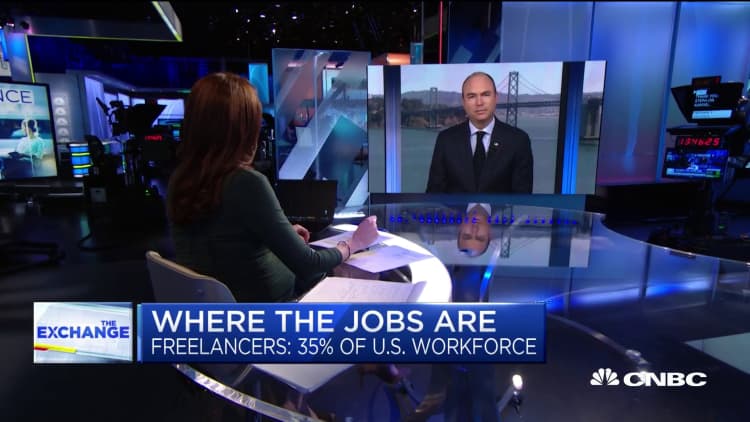If you're an employee working longer days and spending even more on energy costs and other expenses, then becoming your own boss might seem more appealing.
Americans' average working day has lengthened by three hours since employers have sent their staff home in mid-March to minimize the spread of coronavirus, according to NordVPN's analysis of server activity.
Meanwhile, those extra costs you're incurring at home – from your increased use of internet services to your rising energy costs as temperatures rise – can't be written off on your tax return if you're an employee.
Suddenly working for yourself might seem like a fabulous idea.

"In comparison between the employee or the independent contractor route, people love that you can take advantage of tax deductions," said Sheneya Wilson, CPA and founder of Fola Financial in New York.
Independent contractors might also be even more attractive to employers who want to scrimp on expenses.
"Many people don't necessarily mind having employees, but I don't think they realize the costs attributed to that," said Dan Herron, CPA and principal of Elemental Wealth Advisors in San Luis Obispo, California.
For starters, employers looking to scrimp a few bucks would save on payroll taxes, health insurance, workers' compensation insurance and more.
Here's what you should know before you start working for yourself.
Tax savings for freelancers
A company could opt to pay an independent contractor and an employee the same amount, but the differences will show up at tax time.
Employees have income taxes and payroll taxes withheld from each paycheck throughout the year. They receive a Form W-2 every January from their employer, breaking down their wages paid and taxes withheld during the prior year.
These workers generally file an income tax return on April 15 (or, this year, July 15), and either owe or get a refund that's largely based on their withholding.
On the other hand, contractors receive a Form 1099 from each entity that has paid them. This document details the amount they've received.
There is no withholding from the compensation freelancers receive. Instead, they're responsible for paying quarterly estimated taxes on their income.
Contractors pay self-employment taxes, which adds up to 15.3%. Of that, 12.4% of the levy goes toward Social Security, and 2.9% goes toward Medicare.

Employees split this tax with the employer. Each party is responsible for a payroll tax of 7.65% to cover Social Security and Medicare.
Come tax time, independent contractors can reap significant benefits in the form of deductible business expenses. They can write off half of the self-employment levy, internet expenses and phone bills, as well as home-office costs and more, said Wilson.
Further, self-employed people can save more aggressively into a retirement account. Consider that employees can defer up to $19,500 into a 401(k) this year, plus $6,000 if they're over 50.
However, if you were your own boss and you opened a simplified employee pension plan – what's known as a SEP IRA – you can save up to 25% of your net earnings from self-employment, up to $57,000 in 2020.
Paying health insurance premiums also carries tax implications for both types of workers.
In workplace plans, employers' contributions toward health care premiums are exempt from federal income and payroll taxes. Meanwhile, employees pay their share of premiums on a pre-tax basis.
Contractors can claim a tax deduction for premiums they pay toward their medical coverage.
Here's one more tax break that's available to entrepreneurs: the 20% qualified business income deduction. This tax break is available to businesses with pass-through entities, including S-corporations and limited liability companies.
Proceed with caution, as this deduction is subject to limits based on income and the industry you're in.
Employment law landmines

While going independent may sound great from a tax-planning point of view, employers need to tread lightly before they proceed.
The taxman can punish employers who misclassify their employees as contractors.
Such an arrangement would also raise the ire of federal and state labor authorities.
"The IRS can go after the employer for payroll taxes, regardless of whether the independent contractor paid those taxes," said Tyler Mickey, CPA and member of the American Institute of CPAs personal financial specialist committee.
More from Smart Tax Planning:
Employers who took PPP may have to report workers to unemployment
Tax return filings crater as Americans hold off until July 15
Working from home permanently? Know these key tax issues
Generally, workers are deemed employees when the business hiring them have the right to direct and control the work performed, according to the IRS.
To make things even more complicated, freelancers could still be considered employees based on their state's law. That's the case in California, where contractors are eligible for minimum wage protections and overtime pay.
"It's better for employers to spend $1,000 to talk to a labor attorney versus paying the IRS $5,000 in payroll taxes, penalties and interest," said Herron.





